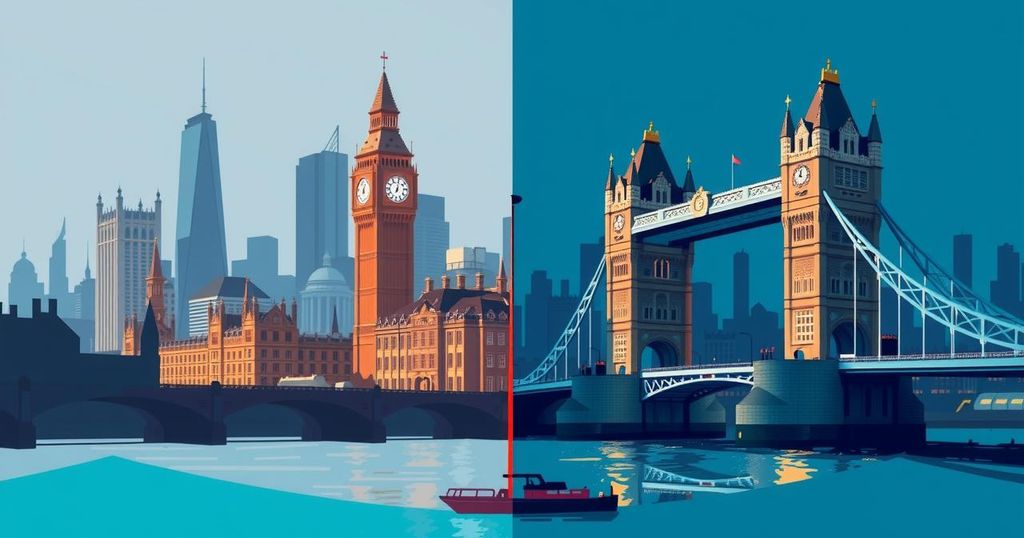The UK has invited the UAE to a conference on Sudan’s conflict, escalating tensions with the Sudanese army-aligned government, which has been excluded. The Sudanese government criticizes the UAE’s participation due to its support for the RSF, alleging hypocrisy and questioning the conference’s legitimacy. This situation highlights the complexities of the ongoing crisis and the necessity of including all relevant parties for effective diplomatic progress.
The United Kingdom has incited anger from the Sudanese army government by inviting the United Arab Emirates (UAE) to an upcoming conference addressing the war in Sudan, scheduled for April 15 in London. Neither the Sudanese Armed Forces (SAF) nor their adversary, the Rapid Support Forces (RSF), have been included in this gathering, raising concerns among Sudanese officials.
The UAE’s participation, especially given its provision of military support to the RSF during the ongoing conflict that began in April 2023, has been particularly shocking to Sudanese authorities. According to a document from the Sudanese foreign ministry, their exclusion was justified by the UK under the classification of a “warring party.” The document pointedly remarks, “Ironically, the UAE, effectively a party to the war, is invited.”
Sudan’s army government expressed that the UAE’s presence would undermine the conference’s legitimacy, characterizing it as a mere public relations effort to enhance the UAE’s image amid serious accusations of genocide at the International Court of Justice (ICJ). The conference’s premise focuses on states and organizations committed to fostering peace, a notion the Sudanese government disputes vehemently.
In addition to the UAE, other nations invited include Qatar, Egypt, Turkey, and Saudi Arabia, all of which are perceived as supporters of the Sudanese army. The UAE’s alignment with the RSF and its supply conduits through various regions have attracted severe scrutiny, particularly after Sudan filed a legal motion against the UAE for complicity in genocide against the Masalit community.
UAE Foreign Minister Anwar Gargash responded critically to Sudan’s actions, encouraging a cessation of hostilities and deriding the Sudanese army’s media strategies as ineffective. This conflict has drawn international attention, with the US confirming that RSF members have engaged in genocidal actions chiefly targeting the Black African Masalit group.
In light of the UAE’s controversial involvement, Sudanese diplomats expressed dismay over their government’s exclusion from the London conference, having initially perceived relations with Britain as improving. Shortly before the invitation news broke, UK officials had engaged with Sudanese representatives, raising hopes for more favorable treatment. However, the strategic choice to invite the UAE has cast doubt on the UK’s diplomatic intentions.
Kholood Khair, a Sudanese analyst, indicated that the UK’s exclusion of Sudan from the dialogue signifies a lack of understanding regarding the complexities of the situation in Sudan. Cameron Hudson, a former CIA analyst, noted that while the UAE is essential for any future dialogues, all relevant Sudanese factions must be included to achieve a comprehensive resolution.
The UK’s decision to exclude the Sudanese army government while inviting the UAE to the upcoming London conference has generated significant backlash from Sudanese officials. Concerns arise over the UAE’s controversial role in the Sudan conflict, which impacts perceptions of the conference’s credibility. As discussions around Sudan’s future proceed, transparent inclusion of all relevant parties may be crucial for fruitful negotiations.
Original Source: www.middleeasteye.net




